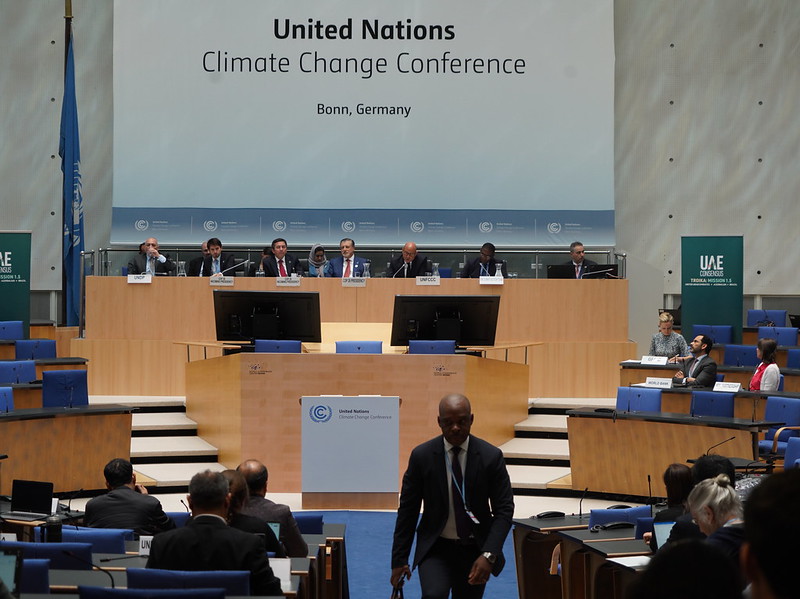It’s been less than six months since countries struck a historic deal to “transition away from fossil fuels” after bitter fights and sleepless nights at COP28. But, in Bonn right now, discussions on what to do next about the biggest culprit of climate change seem to have largely disappeared from the agenda.
“It’s really jarring to see how quiet the conversation on fossil fuels has gone,” said Tom Evans, a senior policy advisor at E3G, adding that the trouble is this issue “doesn’t have a clear home at the UNFCCC right now”.
Last week negotiators clashed over whether that space should be the newly-created “UAE Dialogue” on implementing the outcomes of the Global Stocktake – the centrepiece of the Dubai climate summit.
Developed countries thought so and argued that talks should consider all elements of the global stocktake, including mitigation. But the Like-Minded Group of Developing Countries (LMDCs), which includes China, Saudi Arabia and India, retorted that the focus should be exclusively on finance and means of implementation. Small island states and the AILAC coalition of Latin American countries took the middle ground, pushing for discussions on all outcomes with a special focus on finance, according to observers and a summary of the discussions by the Earth Negotiations Bulletin.
Pending an agreement on that front, developed countries believe the mitigation work programme – a track set up at COP26 – is the only other natural forum to wrangle over emission-cutting measures.But negotiators there have failed to even agree on what should or should not be discussed.
An EU negotiator told Climate Home attempts to start a conversation on the way forward continue to be blocked by the LMDCs, with China and Saudi Arabia “the most vocal” among them. “The reason is that they fear this would put pressure on them to keep moving away from fossil fuels,” the EU delegate added.
The LMDCs argued that discussions over how to follow up on the COP28 agreement on fossil fuels are outside the mandate of the mitigation work programme. They have also hit back at rich nations accusing them of not doing enough to cut emissions.
Speaking on behalf of the group at a session hosted by the COP29 Presidency, the Bolivian negotiator said developed countries should be required to get to net zero by 2030. “The Annex 1 countries’ pathway to achieve net zero by 2050 does not contribute to solving the climate crisis, it is leading the world to a catastrophe,” he added.
In his intervention, the head of the EU delegation urged the COP28 and COP29 presidencies to “break the deadlock” on mitigation. “What are we waiting for?” he cried.
Shortly before, Yalchin Rafiyev, the lead negotiator for Azerbaijan’s COP29 presidency, had outlined his vision for the summit. The 1,918-word-long speech did not mention fossil fuels once.


